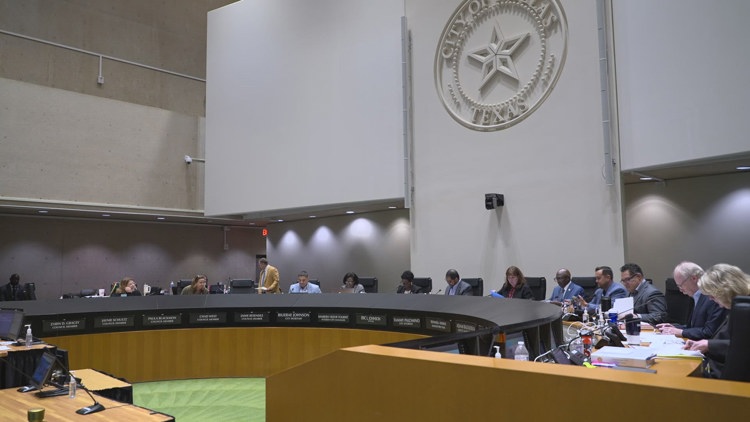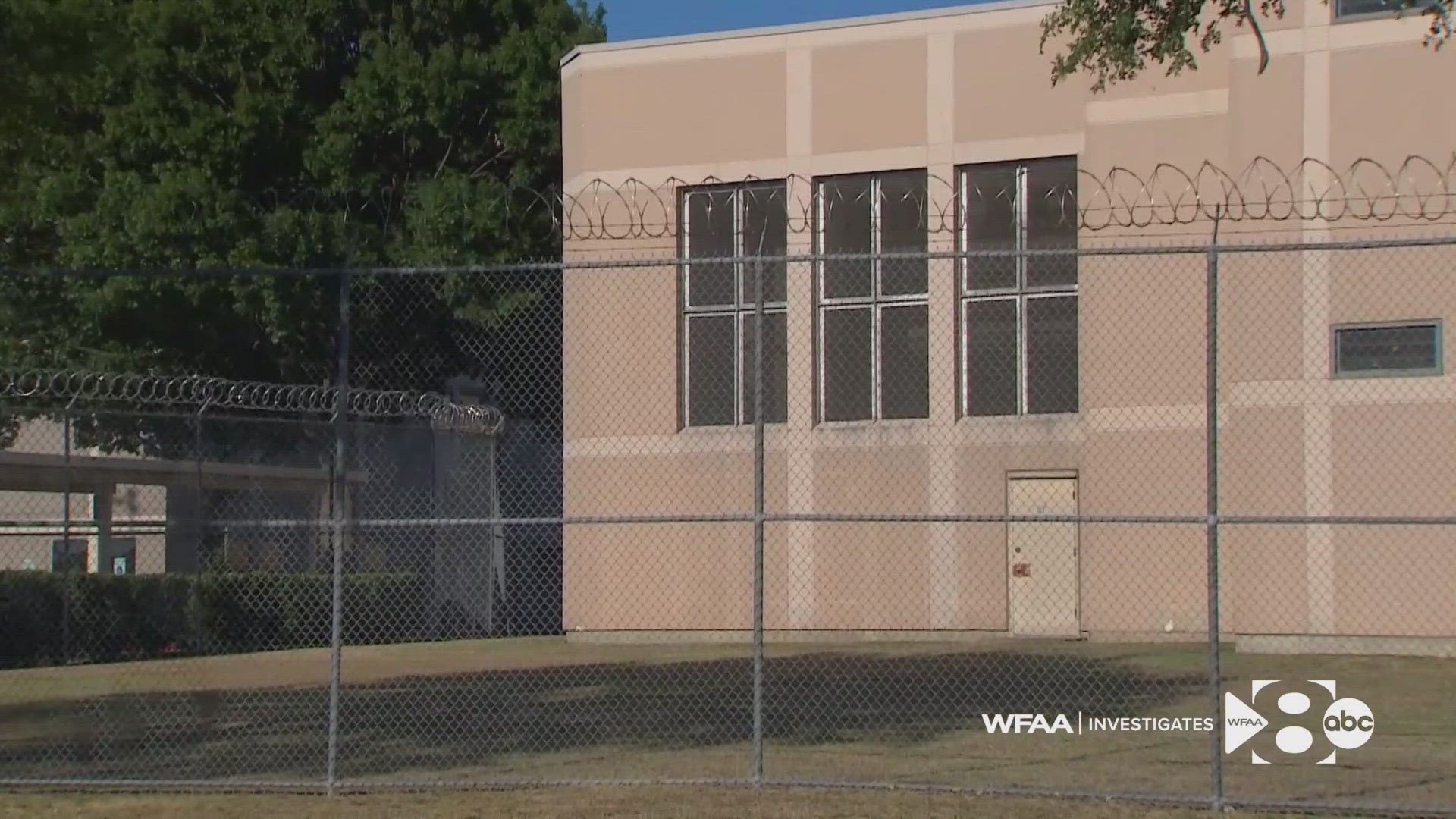DALLAS — On Wednesday, the Supreme Court of Texas ruled that three charter amendments passed by the Dallas City Council, which were written to override three other ballot initiatives proposed by the upstart Dallas HERO group, can no longer appear on the November ballot as elected officials had hoped.
Over the summer, the Dallas HERO organization successfully gathered enough signatures -- 169,000 in all, they say, which is well over the required 20,000 -- to put three city charter amendments before Dallas voters on Nov. 5. If passed, the proposals would separately require the city to increase police pay and hire more officers, put the city manager on performance-based pay and allow citizens to sue city officials if they don’t follow the law.
Those proposed measures were immediately met with pause from city officials, particularly in regards to the Dallas HERO measure that would require a sharp increase in police staffing. The city has estimated that, in order to hire the 900 additional police officers over the course of a year that would be required of the Dallas Police Department should voters approve Dallas HERO's amendment, a roughly $175 million infusion would have to be put into the DPD's annual budget. DPD Police Chief Eddie Garcia called attempting to make good on those demands "nearly impossible" and said that any effort toward doing so "would be a burden on the department, quite frankly."
So, in response to the Dallas HERO proposals, Dallas City Council approved three charter amendment proposals of its own. Their new measures, if passed by voters, would override Dallas HERO's proposals regardless by codifying that final control of allocating city funds city would rest exclusively with the elected council.
Council member Adam Bazaldua called he and his fellow council members' proposals “clarifying amendments more than anything” in an interview on WFAA’s Inside Texas Politics. He also described Dallas HERO's initiatives as the work of "agitators" from the far-right end of the political spectrum.
In the wake of council's amendment proposals, Cathy Cortina Arvizu -- who said in court documents that she was among those who signed the Dallas HERO petitions -- filed a lawsuit against the city on the matter, calling the council's response to the initial proposals unjust. Her suit named the majority of the city council, with the exception of Dallas Mayor Eric Johnson and council member Cara Mendelsohn, who are among the most conservative members of Dallas's elected governing officials.
The back-and-forth, for now, appears to have ended with the Supreme Court of Texas siding with Dallas HERO and ordering the city to drop its counter-measures from the ballot. Given Wednesday's ruling, the next chapter in this saga isn't likely to unfold until November 5 at the polls.
As one might expect, Dallas HERO executive director Pete Marocco celebrated the Supreme Court of Texas ruling immediately after it arrived on Wednesday.
"This type of relief is rarely awarded. Something like this is granted for exceedingly egregious violations of the law by the government," Marocco said in a press release touting his organization's victory in court. “The Supreme Court of Texas agreed with Dallas HERO that the Dallas City Council violated the law and should not have added its counterproposals to the ballot.”
But where did Dallas HERO even come from? And who is behind the group?
Reached by text message, Marocco chose not to identify the other leaders behind Dallas HERO, instead simply calling the group “citizen-driven, not a large organization, mainly volunteers.”
Many signs, however, point to Dallas HERO having ties to Dallas-area businessman Monty Bennett, a prominent hotelier and regular GOP political donor who also serves as publisher of the online publication The Dallas Express.
Arvizu, who filed the lawsuit against the city in response to its amendment proposals, works a paralegal at Bennett's Ashford Inc. company, per her LinkedIn page.
Meanwhile, Stefani Carter, whose LinkedIn page identifies her as president of Dallas HERO, sits on the board of Braemar Hotels and Resorts. As with the hospitality real estate firm Ashford Inc., Braemar is also controlled by Bennett.
The Dallas Express, meanwhile, has published no fewer than 20 articles on Dallas HERO's proposals since mid-July. Most, if not all, of those articles make a point of calling the efforts "citizen-led." None disclose any connection between Dallas HERO and Bennett, the publication's publisher.
Though Bennett has not outwardly claimed any association with Dallas HERO, he took to social media after the Texas Supreme Court decision on Wednesday and celebrated the ruling while linking to a Dallas Express article on the decision.
“The Texas Supreme Court has ruled in favor of Dallas HERO, requiring the #Dallas City Council to remove their last-minute, misleading charter amendments from the November ballot,” Bennett wrote on X, formerly Twitter. “This is a major victory for the people of @CityOfDallas. Once again, the #DallasCityCouncil tried to skirt the law and defraud its residents by substantially changing ballot language in a blatant attempt to obscure the meaning of citizen-led initiatives and nullify reforms.”
According to Transparency USA, a campaign finance database, Bennett has donated to at least one Texas Supreme Court Justice.
Bennett also made a $100,000 donation to Texas Attorney General Ken Paxton in June of 2023. In August of this year, Paxton filed an amicus letter with the Texas Supreme Court on the Dallas HERO lawsuit. After the Supreme Court of Texas' Wednesday ruling, he issued a press release of his own, championing the decision and celebrating his record of support for Dallas HERO's initiatives.
In response to a post on X from Paxton’s office about the amicus brief in August, Bennett directly addressed Paxton and expressed his gratitude for backing Dallas HERO's vision.
"Thanks General," Bennett wrote. "These cities are out of control."
Reached by WFAA, representatives with Bennett's Ashford Inc. declined to comment on behalf of their chairman and CEO in regards to the Dallas HERO ballot initiatives.
Instead, they referred to Bennett's social media posts as a reportable source for his thoughts on the topic.



